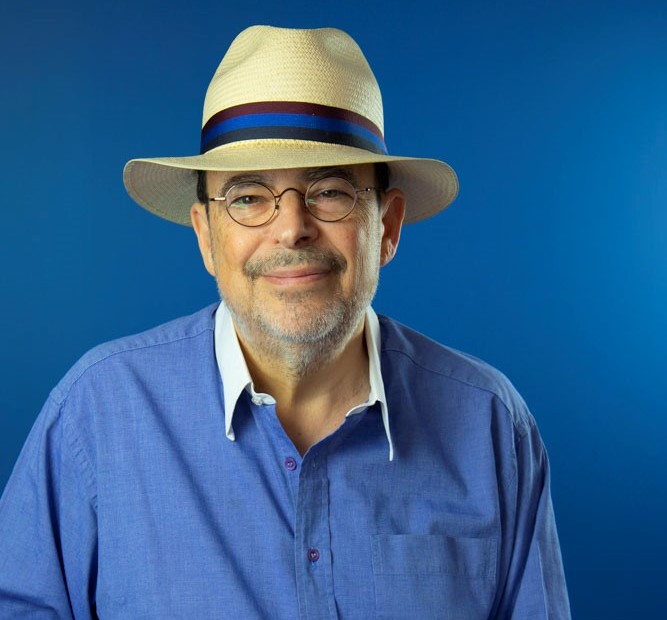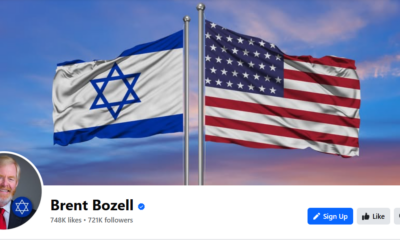
In The News Q&A

First aid required for US-SA relations
With United States President Donald Trump’s first weeks in the White House being highlighted in the news, the SA Jewish Report asked former American diplomat and political analyst and commentator J. Brooks Spector for his opinions on aid, trade, and bilateral relations.
Why do you believe Trump put out that tweet on South Africa’s Expropriation Act?
First of all, we must see this call to halt support of foreign assistance to South Africa as part of a much larger effort to draw down American foreign aid more generally, and to break down the structure of America’s foreign assistance administration and absorb it into the state department.
In addition, there’s a new goal designed to align foreign assistance more closely with Trump’s foreign policy ideas rather than more usually supporting programmes designed to operate over the longer term and enhancing international health and welfare more broadly and beyond the specifics of immediate foreign policy goals.
Finally, of course, it’s important to note that Trump was responding in an ad hoc, unstudied manner to misinformation given to him regarding the circumstances in South Africa, now that the land-reform measure had been signed into law.
More than half a decade ago, during Trump’s first administration, there was a similar outburst about South Africa’s supposed circumstances in response to claims “horrible things” were poised to happen or were already happening to the country’s farming community.
What do you believe the impact will be?
In the immediate circumstances, this halt will obviously do damage to a PEPFAR (President’s Emergency Plan for AIDS Relief) programme that has been especially successful over two decades in dealing with HIV/AIDS and related infections. PEPFAR is a partnership between the US and South African governments, the private sector, and international philanthropic foundations. Throughout its lifetime, it has brought the HIV/AIDS epidemic under control and supported treatment and preventative measures to bear as well.
Absent American support, it will be more difficult to carry out this vital mission, even though a majority of the funding is no longer from US government sources. Sadly, it will also reduce further any positive impact America’s engagement with or influence in this country can have.
What do you make of President Cyril Ramaphosa’s response?
President Ramaphosa’s response was tempered and appropriate. In a word, it was “statesmanlike”. Going forward, his government now must continue to explain and – especially – clarify how the new land measure is designed to improve the circumstances of South Africans. This would be to counter misunderstandings and misinformation about the measure and its intentions.
Was South Africa even on Trump’s agenda before this?
Realistically, South Africa was only marginally in Trump’s consciousness. He certainly doesn’t have a deep historical knowledge or understanding about the complexities of the country. I suspect that, over the years, whenever South Africa has crossed his mind, it has been in response to the thoughts of a very small coterie of people with less than current understandings of the place who have had his ear.
Is there a possibility that this crisis could turn in South Africa’s favour?
Yes, this is actually an opportunity to build a more nuanced understanding of the opportunities and challenges represented by South Africa’s circumstances. But it will take carefully articulated efforts by South African officials and private citizens alike to make such an effort. The positives of PEPFAR as a joint project, the beneficial nature of US investment in South Africa, and the manifold actions and engagements of private citizens from both nations all need to be brought forward.
It’s important to understand, however, that South Africa’s reputation in the thoughts of individuals in the Trump administration hasn’t been enhanced by the rather public embrace by South Africa of Russia, China, and Iran, as well as its efforts at the International Court of Justice. That difficult reality must be addressed. South Africa and Russia’s defence and security relationship in the midst of the Ukrainian invasion is also less than helpful from the American government’s perspective.
Does this impasse have anything to do with South Africa’s relationship and attitude towards Israel over the Gaza war?
South Africa’s relationships with the three nations mentioned above are more consequential as they have a rather more direct impact on building a broader international consensus against Russia’s invasion of Ukraine or Iran’s push towards becoming a nuclear power. But, at the same time, the International Court of Justice effort clearly hasn’t contributed towards building stronger rapport between the US and South Africa.
Do you believe sending Ebrahim Rasool, who has come out clearly as anti-Israel, as ambassador to the US was a wise move?
Naming Ebrahim Rasool as South Africa’s ambassador to the US for the second time was actually a positive step. Recall that recently, he urged lessening the intensity of South Africa’s rhetoric over Gaza, and, by implication, focusing more on bilateral ties instead. To the extent that Rasool works to build upon the already significant bilateral economic ties, as well as with the South African expatriate community in the US, his assignment may well be a successful tenure.
How do you believe Rasool needs to play his cards in order to get the best out of being ambassador in the US?
Beyond the points noted above, as a veteran of Washington and with his existing contacts in America, Rasool could be well-placed to motivate other African representatives to co-operate on creating proposals for initiatives on US and African trade and investment rather than being the more passive recipients of ideas developed solely in Washington. This might also include encouraging a renewal or extension of AGOA (the African Growth and Opportunity Act), a tariff-free window into America that is due to expire this year. To be sure, there’s some significant discontent on Capitol Hill on the part of Republican members of Congress towards continuing South Africa’s eligibility under AGOA and so that challenge is a significant task for the new ambassador.
What do you believe the impact of the halt on USAID to SA will be?
In a word, it will be baleful. At least at this point, beyond putting a halt to programmes like PEPFAR, it will probably have a negative impact on efforts towards the ongoing development of the Lobito Corridor project. That project aims to create a modern transportation infrastructure for the export of vital minerals from southern Africa to the world.
Do you think USAID will resume after 90 days?
Eventually, some foreign assistance will resume in some form, but America’s reputation as a strong, steady partner for development or humanitarian assistance will suffer as a result of this precipitate decision.
Ultimately, how do you see the future of SA and US relations?
The ties – personal, professional, economic, intellectual, and cultural – are strong, and they will continue to grow. What’s at risk, however, is the way the two governments will interact and relate to each other. Comments to the effect that if aid isn’t forthcoming, South Africa should stop selling essential minerals to the US aren’t helpful.
Fortunately, such utterances don’t represent official South African policy. But the bilateral relationship is to some degree hostage to the way the US president sees South Africa, how he wishes to move the relationship, and in which ways. Such things, for now at least, are almost unknowable. As a result, there are caution lights flashing.











Sharon
February 6, 2025 at 3:40 pm
No EWC under Cyril but who knows who will be in next Nobody is investing in SA with this law in place and they have to give the ANC 30% and they have to deal with BBEEE and all the red tape There are better and easier places to do business
So no new jobs and the people wii continue to live in abject poverty
Where is the private sector? Afriforum and Solidarity are doing a good job Where is the international condemnation and pressure It happened under the Nats and there was huge pressure